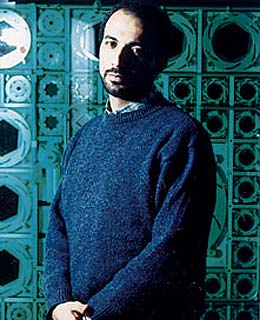
Few observers deny the seductive brilliance of Swiss philosopher and Islamic theoretician Tariq Ramadan, but disagreement over his true agenda is ferocious. Within the past half-decade, Ramadan has become enormously influential among Muslims throughout Europe. He calls for believers to embrace and practice Islam in a thoroughly modern manner. And he advises Muslims on how they can fully integrate into European societies without betraying the universal laws and values of Islam. A successful author, he sells around 50,000 audiocassettes of his speeches each year in France alone.
Detractors claim that Ramadan's messages are filled with a double language. His followers, they say, can decipher his words as a call to furtively spread fundamentalist Islam in society under the cover of modernism and integration. Critics have denounced as anti-Semitic Ramadan's recent critique of "Jewish French intellectual" reaction to the intifadeh. They were appalled when he suggested last year a "moratorium" on the stoning of adulterers in order to consider the legitimacy of the act. (In 2003, his Islamist brother Hani was dismissed as a schoolteacher after defending the stoning of women in Le Monde.)
Ramadan's fans insist that his modernist message is genuine. Some Americans will soon get a chance to judge for themselves. In September he is scheduled to teach a course at the University of Notre Dame's Institute for International Peace Studies called Religion & Conflict.
From the Archive
As American As...: Although scapegoated, Muslims, Sikhs and Arabs are patriotic, integrated—and growing